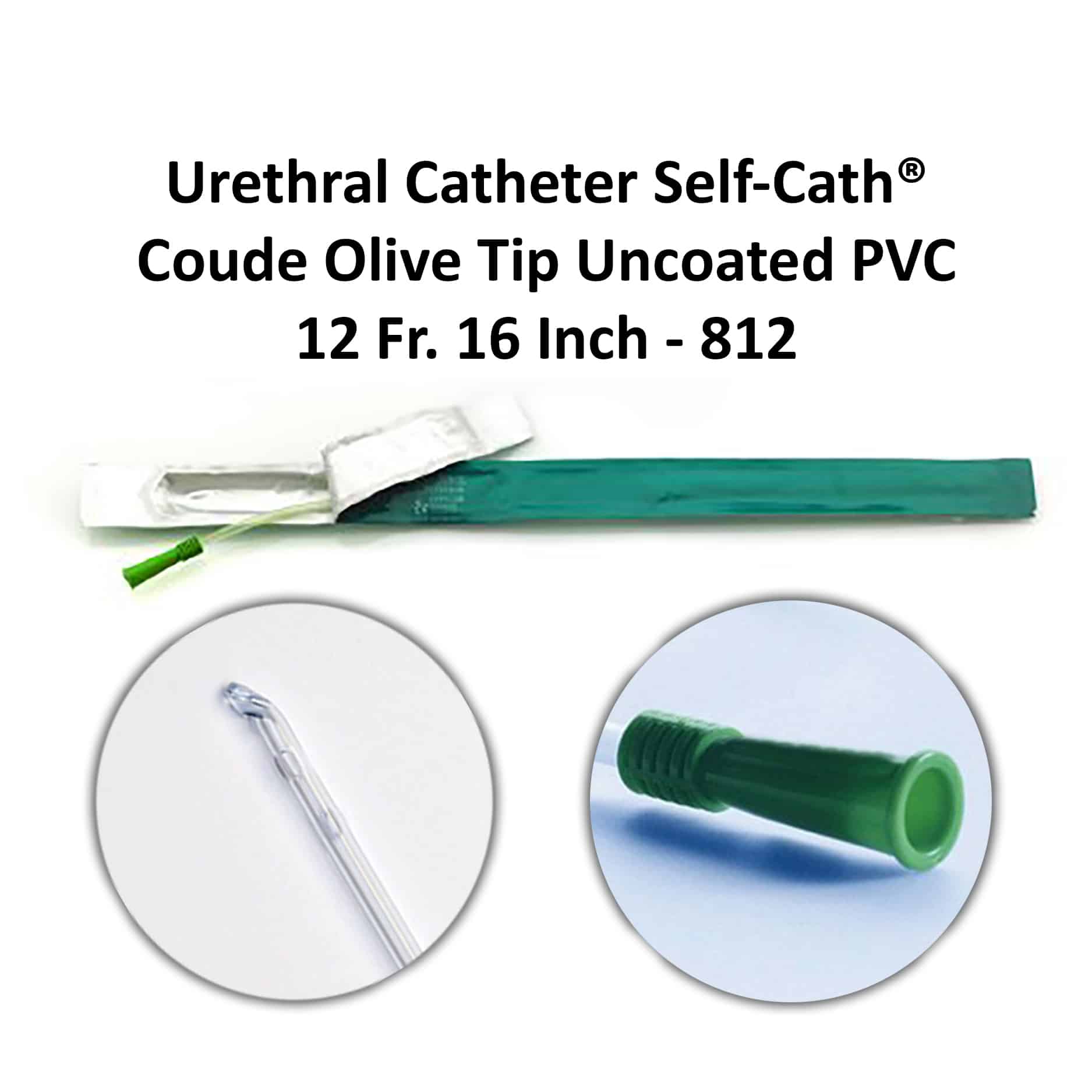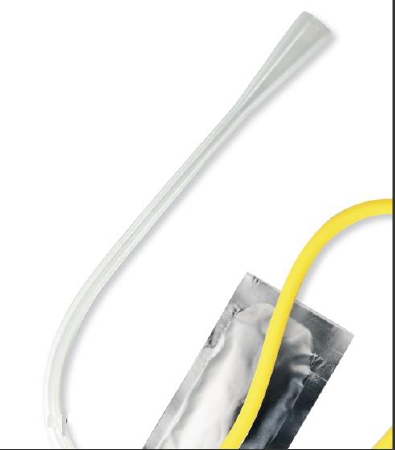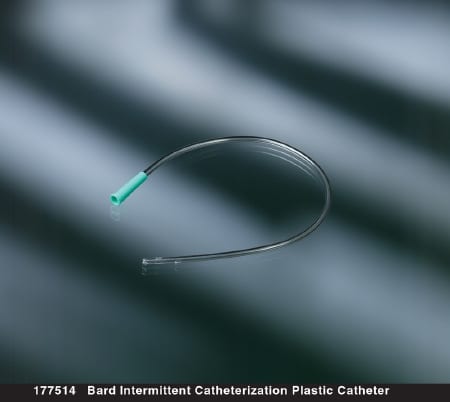Urethral Catheter Self-Cath® Coude Olive Tip Uncoated PVC 12 Fr – 16 Inch | 812
$4.99 – $108.99Price range: $4.99 through $108.99
Notice: Listed prices are for out-of-pocket purchases only. When using insurance, claims must be billed at the insurance company’s set fee schedule rates, which may differ from our out-of-pocket price.
💵
Exclusive Online Price
🚚
Get Free Shipping on All Orders Over $100
💳
CARE CREDIT IS AVAILABLE
Urethral Catheter Self-Cath® Coude Olive Tip Uncoated PVC 12 Fr – 16 Inch | 812
The Urethral Catheter Self-Cath® Coude Olive Tip Uncoated PVC 12 Fr – 16 Inch – 812, Its Coude tip allows for easy and comfortable insertion and assists the user in emptying urine from the bladder. At Shop a wide variety of Coude Tip Catheters is available in PVC
This Urethral Catheter Self-Cath® Coude Olive Tip Uncoated PVC 12 Fr – 16 Inch – 812 Catheter is designed for intermittent self-catheterization. Each catheter is made with the highest quality standards dedicated to patient comfort and ease of use. The fire-polished eyelets and siliconized surface allow for smooth insertion and reduce the risk of urethral trauma.
Features – Urethral Catheter Self-Cath® Coude Olive Tip Uncoated PVC 12 Fr – 16 Inch – 812
- Includes guide strip
- Allows for monitoring of catheter tip position during insertion and removal
- WARNING: This product can expose you to chemicals including Di(2-Ethylhexyl)phthalate (DEHP), which is known to the State of California to cause cancer and birth defects or other reproductive harm. For more information go to www.P65Warnings.ca.gov
Specifications – Coude Olive Tip Urinary Catheter
Product Specifications
| McKesson # | 233203 |
|---|---|
| Manufacturer # | 812 |
| Brand | Self-Cath® |
| Manufacturer | Coloplast |
| Country of Origin | Unknown |
| Application | Urethral Catheter |
| Color Code | White |
| Eyes | Fire Polished Eyelets |
| FSA Eligible – Sell UOM | Yes |
| French Size | 12 Fr. |
| Gender | Male |
| HCPCS | A4352 |
| Hydrophilic Activation Method | Non-Hydrophilic |
| Length | 16 Inch |
| Material | Uncoated PVC |
| Product Dating | McKesson Acceptable Dating: we will ship >= 90 days |
| Sterility | Sterile |
| Style | Coude Olive Tip |
| UNSPSC Code | 42142702 |
| Usage | Disposable |
| User | Adult |
Why use Urethral Catheter Self-Cath® Coude Olive Tip 12 Fr.?
- Intended for use in males requiring bladder drainage as determined by their physician
- Indicated for those who are unable to promote a natural urine flow or who have a significant volume of residual urine following a natural bladder-voiding episode
- Coloplast self cath has a siliconized surface for smooth insertion
- Length: 16″ long
- Single-Use
- Made of flexible medical grade PVC
- Curved packaging
- Sterile
- Latex-free
How to perform
- Self-Cath® Coude Olive Tip Catheter 16 Inch
- Wash your hands thoroughly with soap and water for a minute.
- Remove from the pack
- Position yourself comfortably over the toilet or on a seat (if draining into a drainage bag).
- Clean the opening of the urethra and surrounding area
- Insert the rounded end of the catheter into the urethra with gentle pressure. When the catheter reaches the required position urine will start to flow. Stop pushing the catheter inside.
- When urine stops flowing, remove the catheter from the urethra
- Dispose of the catheter in accordance with local rules and regulations
- Wash your hands after use.
Points to remember while using Self-Cath® Coude Olive Tip 12 Fr.
- Intended for use in patients requiring bladder drainage as determined by their physician
- More specifically it is intended for use where drainage of the bladder into a suitable receptacle such as a commode or bedpan is not feasible or practical
- The device can be used by either the patient once appropriate training has taken place or by a trained healthcare professional
- This device is prescribed by your physician so consult your physician prior to performing self-catheterization and follow the instructions
You will be taught how to insert a urinary catheter into your bladder by a health professional this can be done in a hospital, clinic, or at home. Urinary catheters are inserted into the bladder at intervals throughout the day, or when you feel the need to go to the toilet. It is sometimes necessary to catheterize during the night as well. Once the urine has drained out, the catheter is removed.
Most people feel apprehensive about performing Intermittent Self Catheterisation. It can be a bit awkward to start with but with practice, you will soon become confident.
your local health care professional will offer you support until you feel able to manage alone. Most people go on to say that they find it easy to self-catheterize after a time.
Types Of Catheters Available
There are three main types of catheters used for ISC and the majority of these are single-use disposable. Some catheters have been designed to be reusable although these are now less common.
Coated
Self-Cath® Coude Olive Tip 12 Fr These catheters have a hydrophilic coating that creates a slippery surface around the catheter when run under water before use. The coating allows for easier insertion into the urethra. These are single-use, disposable catheters and are usually made of either PVC or silicone
Non-Coated
Self-Cath® Coude Olive Tip 12 Fr These are the traditional intermittent catheter and most are designed to be washed and reused. They come in a variety of sizes and are made in several materials including silicone, PVC, silver, and stainless steel. Silver or stainless steel rigid catheters are only suitable for women due to the length of the urethra. These are less commonly used now due to being a little more time-consuming and needing to be clean and lubricated the tubes prior to use.
How Do I Self-Catheterise?
Self-Cath® Coude Olive Tip 12 Fr Before use, all catheters should be stored in a dry area, lying flat and straight. If the packaging is damaged, do not use the catheter.
It is very important to wash your hands before touching or inserting the catheter – you may choose to use a fresh baby wipe if there is no wash hand basin in the toilet.
Once you have washed your hands, do not touch anything else except your catheter.
Most catheters have a sticky back patch that allows you to open it and secure it to a surface nearby, such as a wall or sink, making it easier to access when you are ready to insert it into the urethra.
Preparation – For Women
You have to ensure that your vulva (intimate area between your legs) is clean. A daily shower or bath is recommended using a mild soap, but when you go out it is useful to keep a small pack of baby wipes in your handbag or pocket to enable you to ensure the area is clean.
There are several ways to catheterize – you can learn to insert the catheter while sitting on the toilet or in your wheelchair.
when standing or by putting one foot up onto the toilet seat to enable you to locate your urethra more easily. You can experiment and decide which way feels most comfortable. If you are a woman and find it hard to locate your urethra, try using a mirror to see where your urine comes out. Once you have done this several times you will probably not need a mirror. You can do it over the bath if it’s easier.
Preparation – For Men
You have to ensure that the area around the tip of the penis is clean. It may be that a daily shower or bath is sufficient.
but when you go out it is useful to keep a small pack of baby wipes in a pocket to enable you to ensure the area is clean. Men may stand or sit to perform intermittent
The Task
When you are ready, take the catheter by the drainage end from the packaging and gently push the other end into your urethra. When the catheter has reached the bladder.
urine will drain from it. Make sure all the urine has drained from your bladder before removing it.
To remove the catheter, gently twist it and pull it down. Don’t worry if it doesn’t come out the first time. Try again, continuing to pull gently.
This Urethral Catheter Self-Cath® Coude Olive Tip Uncoated PVC 12 Fr – 16 Inch – 812 Available in Stock Order Now, Browse our wide selection of urethral catheters at the lowest prices or get through your medical insurance you may qualify. Find the right catheter for your needs. Available in Stock, Order Now We ship in the United States and all over the world.
| Weight | N/A |
|---|---|
| Dimensions | N/A |
| Quantity | EA/1, BX/30 |
Related products
-
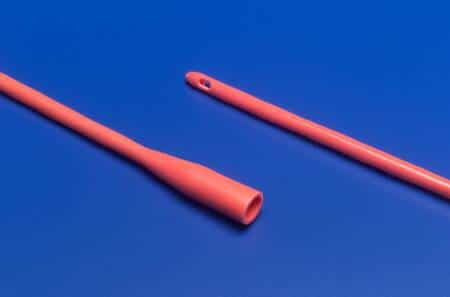
-
Select options This product has multiple variants. The options may be chosen on the product page Details Quick View -

-
Select options This product has multiple variants. The options may be chosen on the product page Details Quick View
Notice: Listed prices are for out-of-pocket purchases only. When using insurance, claims must be billed at the insurance company’s set fee schedule rates, which may differ from our out-of-pocket price.
💵
Exclusive Online Price
🚚
Get Free Shipping on All Orders Over $100
💳
CARE CREDIT IS AVAILABLE
Urethral Catheter Self-Cath® Coude Olive Tip Uncoated PVC 12 Fr – 16 Inch | 812
The Urethral Catheter Self-Cath® Coude Olive Tip Uncoated PVC 12 Fr – 16 Inch – 812, Its Coude tip allows for easy and comfortable insertion and assists the user in emptying urine from the bladder. At Shop a wide variety of Coude Tip Catheters is available in PVC
This Urethral Catheter Self-Cath® Coude Olive Tip Uncoated PVC 12 Fr – 16 Inch – 812 Catheter is designed for intermittent self-catheterization. Each catheter is made with the highest quality standards dedicated to patient comfort and ease of use. The fire-polished eyelets and siliconized surface allow for smooth insertion and reduce the risk of urethral trauma.
Features – Urethral Catheter Self-Cath® Coude Olive Tip Uncoated PVC 12 Fr – 16 Inch – 812
- Includes guide strip
- Allows for monitoring of catheter tip position during insertion and removal
- WARNING: This product can expose you to chemicals including Di(2-Ethylhexyl)phthalate (DEHP), which is known to the State of California to cause cancer and birth defects or other reproductive harm. For more information go to www.P65Warnings.ca.gov
Specifications – Coude Olive Tip Urinary Catheter
Product Specifications
| McKesson # | 233203 |
|---|---|
| Manufacturer # | 812 |
| Brand | Self-Cath® |
| Manufacturer | Coloplast |
| Country of Origin | Unknown |
| Application | Urethral Catheter |
| Color Code | White |
| Eyes | Fire Polished Eyelets |
| FSA Eligible – Sell UOM | Yes |
| French Size | 12 Fr. |
| Gender | Male |
| HCPCS | A4352 |
| Hydrophilic Activation Method | Non-Hydrophilic |
| Length | 16 Inch |
| Material | Uncoated PVC |
| Product Dating | McKesson Acceptable Dating: we will ship >= 90 days |
| Sterility | Sterile |
| Style | Coude Olive Tip |
| UNSPSC Code | 42142702 |
| Usage | Disposable |
| User | Adult |
Why use Urethral Catheter Self-Cath® Coude Olive Tip 12 Fr.?
- Intended for use in males requiring bladder drainage as determined by their physician
- Indicated for those who are unable to promote a natural urine flow or who have a significant volume of residual urine following a natural bladder-voiding episode
- Coloplast self cath has a siliconized surface for smooth insertion
- Length: 16″ long
- Single-Use
- Made of flexible medical grade PVC
- Curved packaging
- Sterile
- Latex-free
How to perform
- Self-Cath® Coude Olive Tip Catheter 16 Inch
- Wash your hands thoroughly with soap and water for a minute.
- Remove from the pack
- Position yourself comfortably over the toilet or on a seat (if draining into a drainage bag).
- Clean the opening of the urethra and surrounding area
- Insert the rounded end of the catheter into the urethra with gentle pressure. When the catheter reaches the required position urine will start to flow. Stop pushing the catheter inside.
- When urine stops flowing, remove the catheter from the urethra
- Dispose of the catheter in accordance with local rules and regulations
- Wash your hands after use.
Points to remember while using Self-Cath® Coude Olive Tip 12 Fr.
- Intended for use in patients requiring bladder drainage as determined by their physician
- More specifically it is intended for use where drainage of the bladder into a suitable receptacle such as a commode or bedpan is not feasible or practical
- The device can be used by either the patient once appropriate training has taken place or by a trained healthcare professional
- This device is prescribed by your physician so consult your physician prior to performing self-catheterization and follow the instructions
You will be taught how to insert a urinary catheter into your bladder by a health professional this can be done in a hospital, clinic, or at home. Urinary catheters are inserted into the bladder at intervals throughout the day, or when you feel the need to go to the toilet. It is sometimes necessary to catheterize during the night as well. Once the urine has drained out, the catheter is removed.
Most people feel apprehensive about performing Intermittent Self Catheterisation. It can be a bit awkward to start with but with practice, you will soon become confident.
your local health care professional will offer you support until you feel able to manage alone. Most people go on to say that they find it easy to self-catheterize after a time.
Types Of Catheters Available
There are three main types of catheters used for ISC and the majority of these are single-use disposable. Some catheters have been designed to be reusable although these are now less common.
Coated
Self-Cath® Coude Olive Tip 12 Fr These catheters have a hydrophilic coating that creates a slippery surface around the catheter when run under water before use. The coating allows for easier insertion into the urethra. These are single-use, disposable catheters and are usually made of either PVC or silicone
Non-Coated
Self-Cath® Coude Olive Tip 12 Fr These are the traditional intermittent catheter and most are designed to be washed and reused. They come in a variety of sizes and are made in several materials including silicone, PVC, silver, and stainless steel. Silver or stainless steel rigid catheters are only suitable for women due to the length of the urethra. These are less commonly used now due to being a little more time-consuming and needing to be clean and lubricated the tubes prior to use.
How Do I Self-Catheterise?
Self-Cath® Coude Olive Tip 12 Fr Before use, all catheters should be stored in a dry area, lying flat and straight. If the packaging is damaged, do not use the catheter.
It is very important to wash your hands before touching or inserting the catheter – you may choose to use a fresh baby wipe if there is no wash hand basin in the toilet.
Once you have washed your hands, do not touch anything else except your catheter.
Most catheters have a sticky back patch that allows you to open it and secure it to a surface nearby, such as a wall or sink, making it easier to access when you are ready to insert it into the urethra.
Preparation – For Women
You have to ensure that your vulva (intimate area between your legs) is clean. A daily shower or bath is recommended using a mild soap, but when you go out it is useful to keep a small pack of baby wipes in your handbag or pocket to enable you to ensure the area is clean.
There are several ways to catheterize – you can learn to insert the catheter while sitting on the toilet or in your wheelchair.
when standing or by putting one foot up onto the toilet seat to enable you to locate your urethra more easily. You can experiment and decide which way feels most comfortable. If you are a woman and find it hard to locate your urethra, try using a mirror to see where your urine comes out. Once you have done this several times you will probably not need a mirror. You can do it over the bath if it’s easier.
Preparation – For Men
You have to ensure that the area around the tip of the penis is clean. It may be that a daily shower or bath is sufficient.
but when you go out it is useful to keep a small pack of baby wipes in a pocket to enable you to ensure the area is clean. Men may stand or sit to perform intermittent
The Task
When you are ready, take the catheter by the drainage end from the packaging and gently push the other end into your urethra. When the catheter has reached the bladder.
urine will drain from it. Make sure all the urine has drained from your bladder before removing it.
To remove the catheter, gently twist it and pull it down. Don’t worry if it doesn’t come out the first time. Try again, continuing to pull gently.
This Urethral Catheter Self-Cath® Coude Olive Tip Uncoated PVC 12 Fr – 16 Inch – 812 Available in Stock Order Now, Browse our wide selection of urethral catheters at the lowest prices or get through your medical insurance you may qualify. Find the right catheter for your needs. Available in Stock, Order Now We ship in the United States and all over the world.
| Weight | N/A |
|---|---|
| Dimensions | N/A |
| Quantity | EA/1, BX/30 |
Related products
-

-
Select options This product has multiple variants. The options may be chosen on the product page Details Quick View -
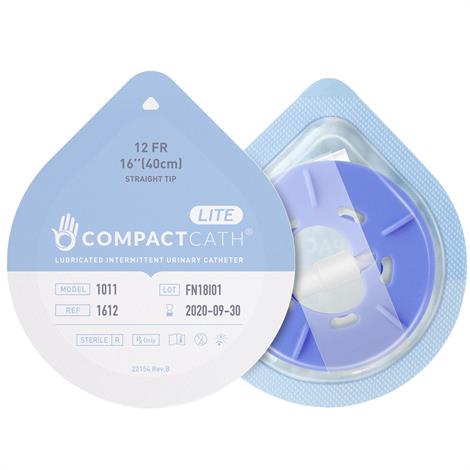
-
Select options This product has multiple variants. The options may be chosen on the product page Details Quick View
Notice: Listed prices are for out-of-pocket purchases only. When using insurance, claims must be billed at the insurance company’s set fee schedule rates, which may differ from our out-of-pocket price.
💵
Exclusive Online Price
🚚
Get Free Shipping on All Orders Over $100
💳
CARE CREDIT IS AVAILABLE
Urethral Catheter Self-Cath® Coude Olive Tip Uncoated PVC 12 Fr – 16 Inch | 812
The Urethral Catheter Self-Cath® Coude Olive Tip Uncoated PVC 12 Fr – 16 Inch – 812, Its Coude tip allows for easy and comfortable insertion and assists the user in emptying urine from the bladder. At Shop a wide variety of Coude Tip Catheters is available in PVC
This Urethral Catheter Self-Cath® Coude Olive Tip Uncoated PVC 12 Fr – 16 Inch – 812 Catheter is designed for intermittent self-catheterization. Each catheter is made with the highest quality standards dedicated to patient comfort and ease of use. The fire-polished eyelets and siliconized surface allow for smooth insertion and reduce the risk of urethral trauma.
Features – Urethral Catheter Self-Cath® Coude Olive Tip Uncoated PVC 12 Fr – 16 Inch – 812
- Includes guide strip
- Allows for monitoring of catheter tip position during insertion and removal
- WARNING: This product can expose you to chemicals including Di(2-Ethylhexyl)phthalate (DEHP), which is known to the State of California to cause cancer and birth defects or other reproductive harm. For more information go to www.P65Warnings.ca.gov
Specifications – Coude Olive Tip Urinary Catheter
Product Specifications
| McKesson # | 233203 |
|---|---|
| Manufacturer # | 812 |
| Brand | Self-Cath® |
| Manufacturer | Coloplast |
| Country of Origin | Unknown |
| Application | Urethral Catheter |
| Color Code | White |
| Eyes | Fire Polished Eyelets |
| FSA Eligible – Sell UOM | Yes |
| French Size | 12 Fr. |
| Gender | Male |
| HCPCS | A4352 |
| Hydrophilic Activation Method | Non-Hydrophilic |
| Length | 16 Inch |
| Material | Uncoated PVC |
| Product Dating | McKesson Acceptable Dating: we will ship >= 90 days |
| Sterility | Sterile |
| Style | Coude Olive Tip |
| UNSPSC Code | 42142702 |
| Usage | Disposable |
| User | Adult |
Why use Urethral Catheter Self-Cath® Coude Olive Tip 12 Fr.?
- Intended for use in males requiring bladder drainage as determined by their physician
- Indicated for those who are unable to promote a natural urine flow or who have a significant volume of residual urine following a natural bladder-voiding episode
- Coloplast self cath has a siliconized surface for smooth insertion
- Length: 16″ long
- Single-Use
- Made of flexible medical grade PVC
- Curved packaging
- Sterile
- Latex-free
How to perform
- Self-Cath® Coude Olive Tip Catheter 16 Inch
- Wash your hands thoroughly with soap and water for a minute.
- Remove from the pack
- Position yourself comfortably over the toilet or on a seat (if draining into a drainage bag).
- Clean the opening of the urethra and surrounding area
- Insert the rounded end of the catheter into the urethra with gentle pressure. When the catheter reaches the required position urine will start to flow. Stop pushing the catheter inside.
- When urine stops flowing, remove the catheter from the urethra
- Dispose of the catheter in accordance with local rules and regulations
- Wash your hands after use.
Points to remember while using Self-Cath® Coude Olive Tip 12 Fr.
- Intended for use in patients requiring bladder drainage as determined by their physician
- More specifically it is intended for use where drainage of the bladder into a suitable receptacle such as a commode or bedpan is not feasible or practical
- The device can be used by either the patient once appropriate training has taken place or by a trained healthcare professional
- This device is prescribed by your physician so consult your physician prior to performing self-catheterization and follow the instructions
You will be taught how to insert a urinary catheter into your bladder by a health professional this can be done in a hospital, clinic, or at home. Urinary catheters are inserted into the bladder at intervals throughout the day, or when you feel the need to go to the toilet. It is sometimes necessary to catheterize during the night as well. Once the urine has drained out, the catheter is removed.
Most people feel apprehensive about performing Intermittent Self Catheterisation. It can be a bit awkward to start with but with practice, you will soon become confident.
your local health care professional will offer you support until you feel able to manage alone. Most people go on to say that they find it easy to self-catheterize after a time.
Types Of Catheters Available
There are three main types of catheters used for ISC and the majority of these are single-use disposable. Some catheters have been designed to be reusable although these are now less common.
Coated
Self-Cath® Coude Olive Tip 12 Fr These catheters have a hydrophilic coating that creates a slippery surface around the catheter when run under water before use. The coating allows for easier insertion into the urethra. These are single-use, disposable catheters and are usually made of either PVC or silicone
Non-Coated
Self-Cath® Coude Olive Tip 12 Fr These are the traditional intermittent catheter and most are designed to be washed and reused. They come in a variety of sizes and are made in several materials including silicone, PVC, silver, and stainless steel. Silver or stainless steel rigid catheters are only suitable for women due to the length of the urethra. These are less commonly used now due to being a little more time-consuming and needing to be clean and lubricated the tubes prior to use.
How Do I Self-Catheterise?
Self-Cath® Coude Olive Tip 12 Fr Before use, all catheters should be stored in a dry area, lying flat and straight. If the packaging is damaged, do not use the catheter.
It is very important to wash your hands before touching or inserting the catheter – you may choose to use a fresh baby wipe if there is no wash hand basin in the toilet.
Once you have washed your hands, do not touch anything else except your catheter.
Most catheters have a sticky back patch that allows you to open it and secure it to a surface nearby, such as a wall or sink, making it easier to access when you are ready to insert it into the urethra.
Preparation – For Women
You have to ensure that your vulva (intimate area between your legs) is clean. A daily shower or bath is recommended using a mild soap, but when you go out it is useful to keep a small pack of baby wipes in your handbag or pocket to enable you to ensure the area is clean.
There are several ways to catheterize – you can learn to insert the catheter while sitting on the toilet or in your wheelchair.
when standing or by putting one foot up onto the toilet seat to enable you to locate your urethra more easily. You can experiment and decide which way feels most comfortable. If you are a woman and find it hard to locate your urethra, try using a mirror to see where your urine comes out. Once you have done this several times you will probably not need a mirror. You can do it over the bath if it’s easier.
Preparation – For Men
You have to ensure that the area around the tip of the penis is clean. It may be that a daily shower or bath is sufficient.
but when you go out it is useful to keep a small pack of baby wipes in a pocket to enable you to ensure the area is clean. Men may stand or sit to perform intermittent
The Task
When you are ready, take the catheter by the drainage end from the packaging and gently push the other end into your urethra. When the catheter has reached the bladder.
urine will drain from it. Make sure all the urine has drained from your bladder before removing it.
To remove the catheter, gently twist it and pull it down. Don’t worry if it doesn’t come out the first time. Try again, continuing to pull gently.
This Urethral Catheter Self-Cath® Coude Olive Tip Uncoated PVC 12 Fr – 16 Inch – 812 Available in Stock Order Now, Browse our wide selection of urethral catheters at the lowest prices or get through your medical insurance you may qualify. Find the right catheter for your needs. Available in Stock, Order Now We ship in the United States and all over the world.
| Weight | N/A |
|---|---|
| Dimensions | N/A |
| Quantity | EA/1, BX/30 |
Related products
-
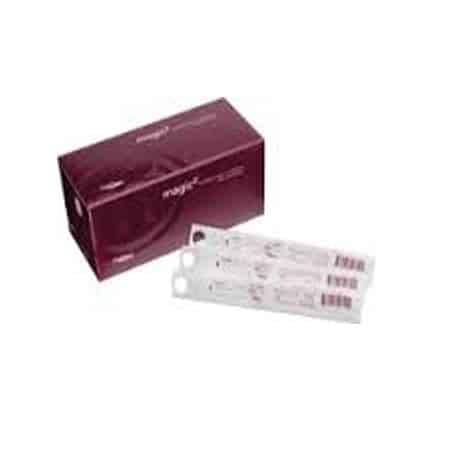
-
Select options This product has multiple variants. The options may be chosen on the product page Details Quick View -

-
Select options This product has multiple variants. The options may be chosen on the product page Details Quick View


